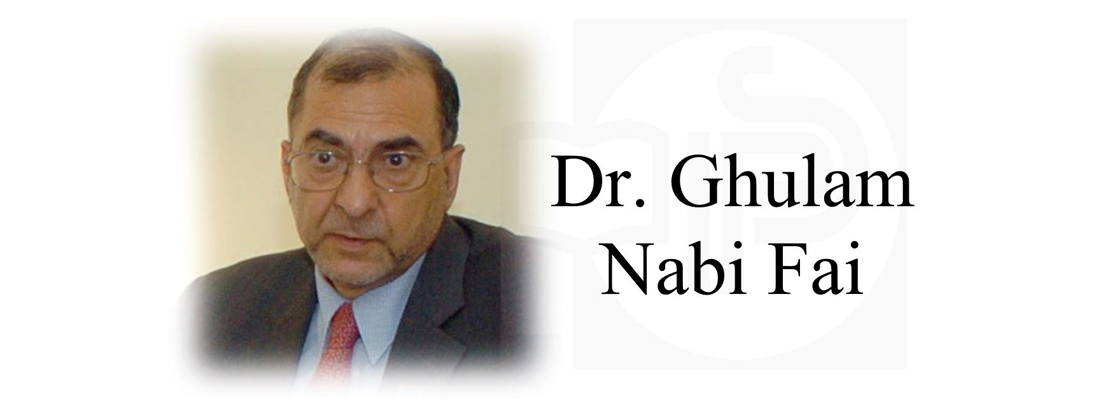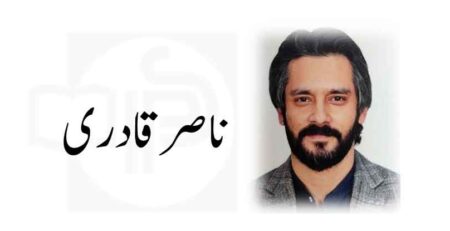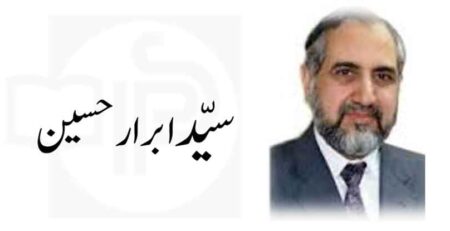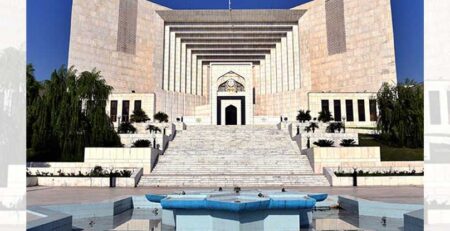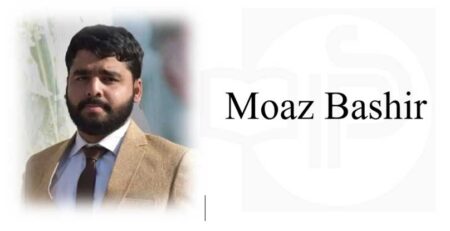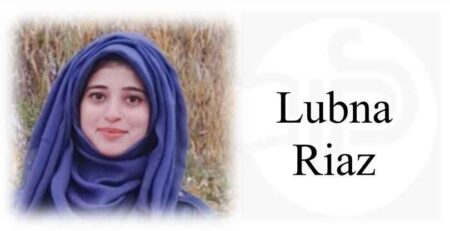ڈاکٹر ایّوب ٹھاکر: کشمیر کی آزادی کی جدوجہد کا مجسم نمونہ
ڈاکٹر ایوب ٹھاکر ایک دوست اور ساتھی تھے۔ عظیم مفکر، عالم، دانشور، اور معروف ماہرِ امورِ کشمیر تھے۔ وہ اپنے کردار، ایمانداری اور مقصد کے لیے قربانی دینے کے لیے مشہور تھے۔ وہ ریاست جموں و کشمیر کے پہلے مسلمان ایٹمی سائنسدان تھے۔
Dr. Ayub Thakur: Embodiment of Kashmir freedom struggle
Dr. Ghulam Nabi Fai
Dr. Ayub Thakur was a friend and a colleague. The great thinker, scholar, intellectual, and well-known Kashmir expert was best known for his character, honesty, and sacrifice for the cause. He was the first Muslim nuclear scientist from the state of Jammu and Kashmir.
Dr. Ayub Thakur started his political career in the early ’70s as a student leader when he was elected president of the Kashmir University Research Scholar’s Association. He was also elected as the president of Kashmir University Students Union. In 1974, he established the Jammu and Kashmir Students Islamic Organization, which later became Islami Jamiat-e-Talaba, and he headed it until 1981. He then joined Kashmir University as a lecturer.
It was in 1973 when I first met Dr. Ayub at his residence at Kashmir University along with a friend, Aashiq Kashmiri, who was then the editor of Daily Azan. We spent hours together.
Dr. Ayub was a man with a mission. In August 1980, Islami Jamiat-e-Talaba announced an international youth conference on the right to self-determination. The conference was banned by Sheikh Muhammad Abdullah, who was then the chief minister, and Dr. Thakur was dismissed from his service in August 1980. His crime: He demanded the implementation of UNSC resolutions. He was arrested and imprisoned for five months.
Soon after his release, he went to Saudi Arabia in 1981 and was appointed associate professor in the Department of Physics at King Abdul Aziz University, Jeddah. While in Jeddah, Dr. Ayub was invited to the USA, where he met half a dozen Kashmiri Americans. It was in 1981 that the World Kashmir Freedom Movement (WKFM) was established. Dr. Ayub became its founding president, and Dr. Ghulam Nabi Mir the secretary general. Dr. Akram, Dr. Rauf, Dr. Khalid, Nazir Qureishi, and myself were elected board members. Dr. Ayub is not with us today, but the board he established in 1981 is still intact.
Then, in 1986, Moulana Saduddin, ameer of Jamaat-e-Islami Jammu Kashmir, came to Saudi Arabia to perform hajj. Dr. Ayub arranged a series of meetings with him with Moulana Abdul Bari, ameer of Jamaat-e-Islami Azad Kashmir, Professor Alifuddin Turabi, Tariq Mehmood Tariq, and Nazir Qureishi. It was decided that Dr. Ayub would move to England, where the environment was suitable for political activities. While Dr. Ayub was packing to move to London, he received the renewal of the job agreement for the next three years, which he declined.
I remember Dr. Nejatullah Siddiqui, one of the internationally known Muslim economists, called and asked me to meet Dr. Umar Jamjoom, the dean of the Faculty of Engineering. Dr. Jamjoom told me he had more than a dozen applications from people who wanted this job, but he wanted Dr. Ayub to continue. I told him that it was almost impossible to convince Dr. Ayub to stay because he wanted to pursue the cause of Kashmir in England.
Soon after he arrived in London, Dr. Ayub, Advocate Hassam-ud-Din, Professor Khurshid Ahmad, Khurram Jah Murad, Dr. Manazir Ahsan Gilani, Syed Munawar Hassan Mashhadi, Moulana Tufail Mohammad and Nazir Qureishi had a few meetings on how to channelize our energy for the Kashmir cause. It was decided to establish the International Institute of Kashmir Studies with Advocate Hassam-ud-Din as its founding director. Kashmir Press International was set up in Birmingham. Mercy Universal was established with Dr. Akram as its founding chairman; the current chairman is Nazir Qureishi.
In one of the board meetings of WKFM, Dr. Ayub suggested mobilizing the academic and educational institutions in England. He said WKFM does not fit in this context. So, the Justice Foundation was established in 2003. Nabila Sadiq, a British national of Azad Kashmiri heritage who had graduated from Oxford University and was enrolled at Cambridge University, was appointed its first coordinator.
Dr. Ayub passed away on March 10, 2004, the salat al-janazah was performed at the Islamic Cultural Centre (ICC), Regent’s Park, London, on March 12. Thousands of people attended the salat al-janazah, including Mian Shahbaz Sharif, the current prime minister of Pakistan. “Ayub sahib was deeply committed to the cause of Kashmir. We have had many discussions together. He was a genuine and honest person. We will miss him a lot,” Shahbaz Sharif said while expressing condolences to the family and friends of Dr. Ayub at ICC.
I am thankful to Shahbaz Sharif for raising Kashmir in his maiden speech in Parliament and clearly saying, “Let’s all come together … and the National Assembly should pass a resolution for the freedom of Kashmiris and Palestinians.”
The nation of Kashmir knows that the principled stand of the Government of Pakistan has been that the improvement in relations with India is contingent on the resolution of all outstanding issues, including the long-standing matter of Jammu and Kashmir. Pakistan’s position since August 5, 2019, has been that the relationship between New Delhi and Islamabad cannot be normalized unless India retracts its revocation of Article 370 and 35A in Kashmir.
The moral, political, and diplomatic support that the government and people of Pakistan have been extending to the Kashmir cause is a matter of historical record. However, the feeling is that in the past few years, the Government of Pakistan has not done as much as expected.
Even if Pakistani politics remains polarized, or otherwise, Kashmiris would still want to exercise their right to self-determination. The continuance of Indian military occupation despite the great wrongs – over one hundred thousand deaths – it has inflicted is a huge atrocity by itself, reflecting the cynical indifference to human rights that governs the present world order. But it does not in any way elicit from Kashmiris acceptance of, or reconciliation with, Indian rule.
There have been numerous attempts by some important capitals to mollify Pakistan to normalize relations with India. It is a historical fact that Pakistan resisted undue pressure from world capitals, rejected $5 billion from President Clinton in May 1998, and did not compromise on the country’s national security. We hope that history will be repeated in 2024 and Pakistan will not compromise on the national security issue of Kashmir.
The people of Kashmir are not against Pakistan developing friendly relations with its neighbors. However, Pakistan must define three parameters for normalization. First, the issue of Kashmir is about the right to self-determination, guaranteed by UN resolutions. Second, Kashmiri leadership can never be marginalized in any solution. Third, violence and normalization do not go together.
The UN resolutions on Kashmir acquire continuing decisive importance from two crucial factors. One, they constitute the only international agreement freely negotiated between India and Pakistan on the future status of Kashmir. Two, they embody the only principle on whose basis a just and durable settlement of the problem can be achieved – the principle of freedom of choice by the people concerned.
The people of Kashmir can never forget the selfless contribution and tireless efforts of Dr. Ayub Thakur. His struggles will forever remain a milestone in the history of the freedom struggle of Kashmir.
———–
*Dr. Ghulam Nabi Fai is the chairman of the World Forum for Peace & Justice based in Washington, D.C. This article is based on a talk he delivered at the international hybrid seminar ‘Kashmir and the Global Conscience: A Discussion in the Light of Dr. Ayub Thakur’s Life and Services’. The memorial was organized by the Institute of Policy Studies on March 7, 2024.

